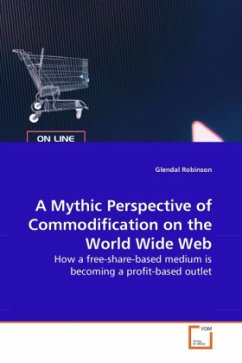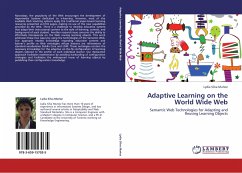Capitalism's success, according to Karl Marx, is based on continued development of new markets and products. As globalization shrinks the world marketplace, corporations are forced to seek both new customers and products to sell. Commodification is the process of transforming objects, ideas and even people into merchandise. The recent growth of the World Wide Web has caught the attention of the corporate world, and they are attempting to convert a free-share-based medium into a profit-based outlet. To be successful, they must change Web users' perception about the nature of the Web itself. This study asks the question: Is there mythic evidence of commodification on the World Wide Web? It examines how the World Wide Web is presented to readers of three U.S. publications--Wired, Newsweek, and Business Week--from 1993 to 2000. It uses Barthes' two-tiered model of myths to examine the descriptors used to modify and describe the World Wide Web.








